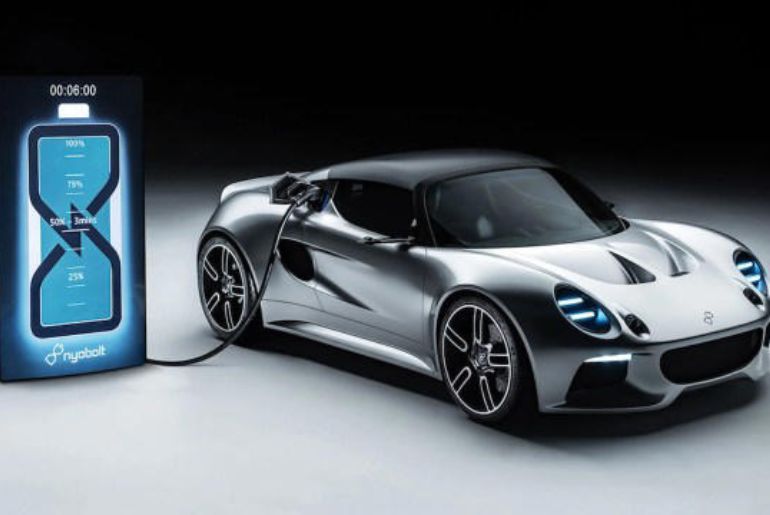Nyobolt, a battery manufacturer in the United Kingdom, has reduced already remarkable charging times by an additional minute. According to reports from the BBC and the company, the company was founded in 2019 with the goal of bringing ultrafast-charging batteries to the market. Today, it boasts a power pack that can go from 10% to 80% in four minutes and 37 seconds.
When driving a sports automobile that was specifically constructed, the accomplishment was accomplished. With thousands of cycles of testing under its belt, the battery may have proved to be the last straw in the case of range anxiety.
“Electric cars really aren’t limited by the batteries anymore,” Edward Brightman, a chemical engineering lecturer at Scotland’s University of Strathclyde said.
Nyobolt doesn’t go into a lot of details on the inner workings of its impressive power pack. It promotes two solutions on its website: Nyobolt Ultra, a “high voltage” version that provides maximum run time, taking six to 10 minutes, and Nyobolt Xtreme, a “high current” power option that charges in one to five minutes.
The latter is billed as having maximum cycle life and a “low total cost of ownership.” The Nyobolt tech also reportedly hits the mark on storage capacity, power output, safety, and lifespan, among other key metrics often on the checklists of battery innovators around the world.
The sports car was able to travel 120 miles after just minutes of charging, per the BBC. By comparison, Tesla Superchargers can provide up to 200 miles of range in 15 minutes. Many motorists would likely exchange the 80 miles for the extra 10 minutes. A study completed by AAA a couple of years ago found that U.S. drivers travel just over 30 miles a day on average, easily within the Nyobolt range.
The test marks an important milestone for EVs, as charge times are dropping across the industry. Volvo and other major brands are also investing in tech to provide 100 or more miles of juice in just minutes.
“People are going to want fast-charging infrastructure, independent of what car they’re using — everyone wants to do this more quickly,” Oxford sustainable energy engineering professor Paul Shearing said.
Global EV sales neared 14 million in 2023, continuing an upward trend, as the International Energy Agency notes. Lucrative federal government tax incentives of up to $7,500 can help to make EVs more affordable, along with competition and better tech. What’s more, EV owners can save about $1,500 a year on gas and maintenance costs, not to mention the thousands of pounds of air pollution that will be prevented by parking a gas-guzzler, according to the U.S. Department of Energy. Heat-trapping smog caused by burning fuel can trigger asthma and other serious health problems, according to the U.S. Department of Transportation.
The next step, per the experts interviewed by the BBC, is building out a robust charging infrastructure. Recent Tesla layoffs could slow efforts in the United States to add hundreds of thousands more ports by 2030, detailed here by the DOT. The company already boasts a robust 50,000 Superchargers globally.
A universal charger being developed in India is another innovation that could help to streamline power-up options for motorists in the future, as well.
“We urgently need to upgrade the grid and deploy rapid chargers with the capability to deliver the charge to the battery,” Brightman said.


